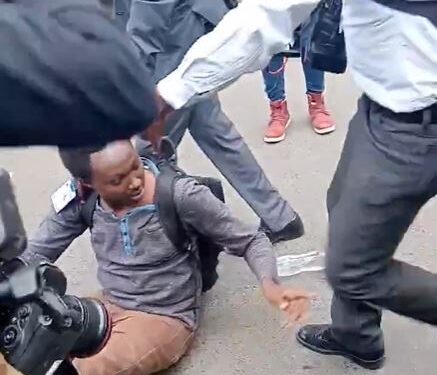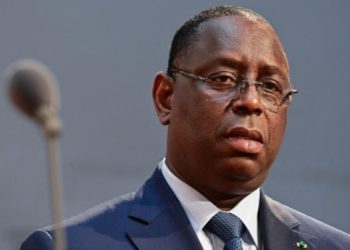By Ebi Kesiena
There were ugly scenes in Nairobi on Tuesday as police, journalists clashed during protests against the Finance Bill 2024.
Viral videos showed disturbing incidents, including a journalist from the Standard Group, Justus Mwangi, being forcibly detained and subsequently falling from a moving police vehicle. Another video captured a Nation Media Group journalist being assisted after sustaining injuries.
The Media Council of Kenya (MCK) swiftly condemned the attacks. MCK CEO David Omwoyo stated, “The Media Council of Kenya condemns the arbitrary arrests and attacks on journalists covering today’s protests in Nairobi’s CBD.”
The protests were sparked by widespread opposition to the Finance Bill 2024, which proposes significant tax increases. Kenyan police responded with tear gas and arrested at least a dozen demonstrators. The bill, projected to raise 346.7 billion shillings ($2.7 billion), aims to reduce reliance on external borrowing but has faced severe criticism amid a cost-of-living crisis.
Hundreds of protesters, clad in black, marched toward parliament but were repelled by police using tear gas.
Rara Eisa, a 29-year-old first-time protester, expressed her frustration: “I am tired. The prices of everything have gone up, life is no longer affordable.” Eisa described the tax hikes as oppressive.
Protesters carried signs reading “do not force the taxes on us” and referred to President William Ruto as “Zakayo,” the Swahili name for the biblical tax collector Zacchaeus. Paloma Njoroge, a 22-year-old student, dismissed claims that the protests were merely “social media activism,” saying, “I have my bottle of water and running shoes, they have to feel our disgust.”
The Finance Bill’s contentious provisions include a motor vehicle tax set at 2.5 percent of the car’s value and the reintroduction of VAT on bread. The protest, dubbed “Occupy Parliament,” gained traction after an activist leaked MPs’ contact details, urging people to flood them with calls and messages opposing the bill.
Analysts suggest that while the tax hikes could slow consumption and hurt the economy, the bill is likely to pass due to Ruto’s party parliamentary majority. Amid rising discontent, President Ruto convened a meeting to rally his MPs behind the bill ahead of the debate.
Meanwhile, the Kenya Human Rights Commission (KHRC) has urged the police to cease arrests, asserting, “Our constitution grants us the right to protest. Still, if the arrests persist, we won’t be deterred,” via their statement on X, formerly Twitter.
Ruto, who took office in 2022 promising economic revival and poverty alleviation, has faced backlash over his policies, including increased income tax, health insurance contributions, and doubled VAT on petroleum products. Previous tax hikes led to protests, sometimes resulting in deadly clashes between police and demonstrators.
Kenya, one of East Africa’s most dynamic economies, has about a third of its 51.5 million population living in poverty. Overall inflation has remained high, with the central bank reporting an annual rate of 5.1 percent in May, while food and fuel inflation stood at 6.2 percent and 7.8 percent respectively.




































